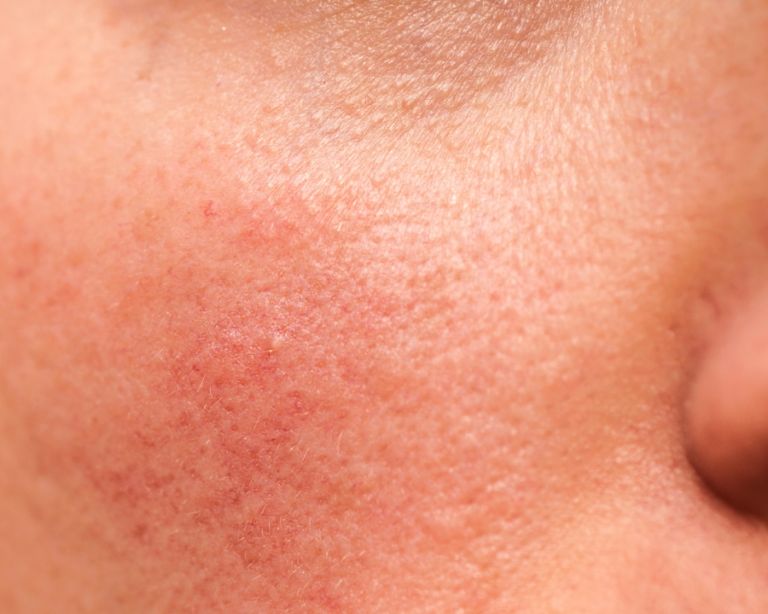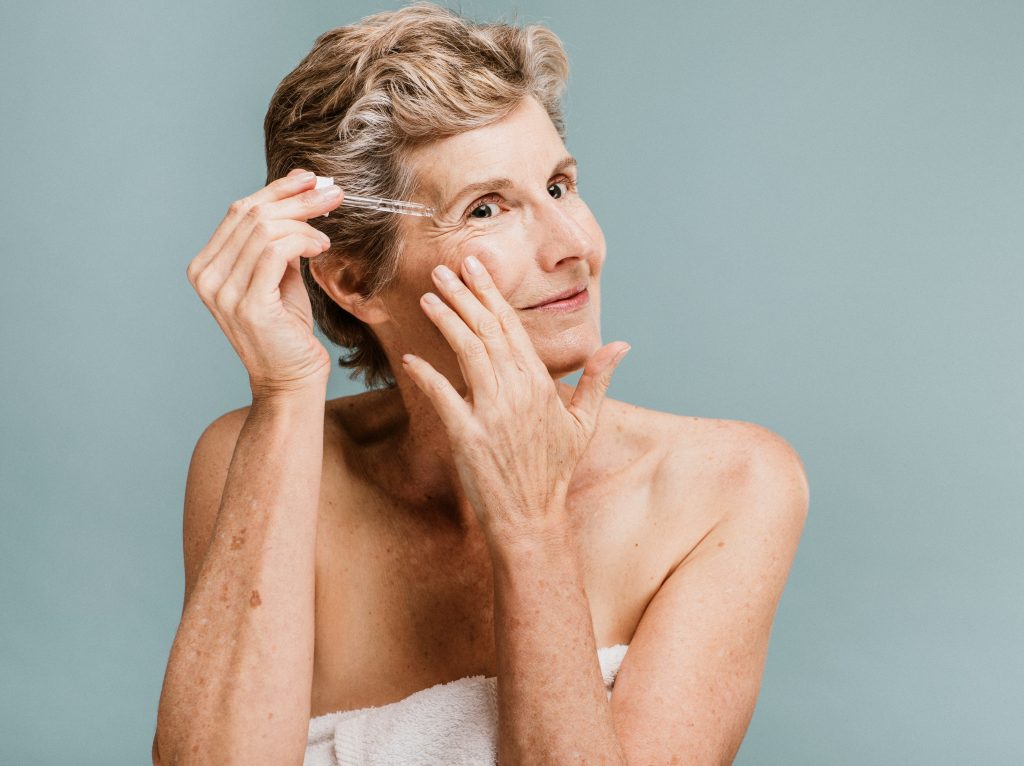Dr. Jeffrey Ross Gunter has helped rosacea patients successfully manage the symptoms of their disease and lead normal lives. At SummitMD Dermatology, he first reassures them that their condition is more common than they think and that there is help for it. “My patients’ anxiety is reduced when they understand they are not alone,” he says. “Bill Clinton has rosacea, as did Princess Diana, so this knowledge gives them the determination to thrive despite having this disease.”
Rosacea is characterized by the person’s tendency to flush more easily than do other people. “It’s not limited to the face, however,” Dr. Gunter states. “It can spread to the chin, forehead, and ears. Some of my patients experience that redness on their back and chest.”
There are more symptoms than the initial redness, however. Blood vessels may be visible; acne-like breakouts may occur; the skin might thicken, especially on the nose, and feel bumpy; and the eyes may become dry, itchy, red, and swollen. The skin can be very oily, sensitive, and painful. Over time, the redness in the center of the patient’s face often becomes permanent. “Rosacea impacts the patient’s quality of life,” says Dr. Gunter. “Their vision is sometimes blurry, and their eyes can be sensitive to light.”
Rosacea also has an emotional impact on patients, who are often frustrated and embarrassed about their disease. The National Rosacea Society conducted a survey in which 41% of respondents said they had avoided public contact or canceled social engagements. Worrying about scarring is common, as is low self-esteem. “That same survey stated that for those with severe rosacea, nearly 88% said the disorder had adversely affected their professional interactions, and almost 51% had missed work because of rosacea. Many of my own patients have struggled with anxiety and depression.”
Dr. Gunter diagnoses rosacea through observation. “There is no medical test for it. I do, however, make sure that you don’t have a condition with similar symptoms, like lupus. Once I confirm it is rosacea, I talk to the patient about treatment. Unfortunately, there is no cure, but there are effective ways to manage or even eliminate the symptoms of it.”
Dr. Gunter believes a good treatment plan starts with education. “I first help my patient to fully understand rosacea. I have found that having information leads to less anxiety in the patient. It’s also important because, in order to treat the disease, the person may have to change some of their daily habits.”
He explains that there are common triggers that can cause rosacea to flare up. “Those are different for every person, of course, but in general, the big ones are spicy food, becoming hot, and having the cold wind blow on your face. Other triggers include stress, alcohol, the sun, some makeup and skincare products, and exercise.”
To understand their triggers, Dr. Gunter recommends that patients keep a journal for at least two weeks. “Write down everything that you eat and drink as well as any skincare products and hair care products you use. Include the times you were exposed to heat and cold. Then look at when your rosacea flared up, and you’ll be able to figure out what your triggers are.”
Also important, Dr. Gunter says, is protecting the skin from the sun’s UV rays. “This is important for everyone, of course, but especially so for rosacea patients. The disease makes their skin susceptible to sunburns, so they must use a sunscreen that is at least SPF30 every day. When outside, stay in the shade and wear a wide-brimmed hat. Long sleeves are good, as are sunglasses.”
He recommends taking especially good care of their skin. “This is a bit harder because so many skincare products irritate the skin for people who have rosacea. Make sure the product is mild, and do not scrub your face. Instead, be gentle as you wash so that you don’t aggravate your rosacea.”
Dr. Gunter has seen many rosacea patients thrive because they avoid their triggers and follow their treatment plans. “These days, it is very possible for people to lead full, satisfying lives. Rosacea does not have to define who they are.”
Dr. Jeffrey Ross Gunter is a dermatologist at SummitMD Dermatology. He is a board-certified dermatologist and a graduate of the Keck School of Medicine at the University of Southern California.
View all articles about Rosacea.





